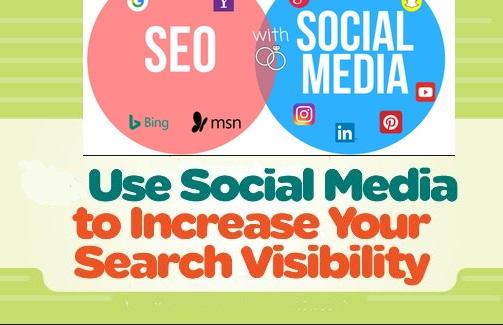Using social media for improving search engine rankings involves a combination of strategies that complement your overall SEO efforts. While social media itself doesn’t have a direct impact on search engine rankings, there are ways to leverage it in your digital marketing strategy to indirectly boost your website’s visibility and authority.
Here are some effective strategies:
- Share high-quality content: Create valuable and shareable content on your website or blog. When you share this content on social media platforms, it increases the chances of getting more backlinks from other websites, which can positively impact your search engine rankings.
- Build a strong social media presence: Engage with your audience regularly and build a loyal following. The more active and influential your social media accounts are, the more likely it is for people to share and link to your content.
- Use relevant keywords and hashtags: Incorporate relevant keywords and hashtags in your social media posts to increase the visibility of your content to users searching for those terms. This can help drive more traffic to your website.
- Encourage social sharing: Add social media sharing buttons to your website and blog posts to make it easy for visitors to share your content. More shares can lead to more visibility and potential backlinks.
- Collaborate with influencers: Partner with influencers and other industry leaders to promote your content. Their endorsement can result in more shares and engagement, which can indirectly influence search engine rankings.
- Utilize visual content: Visual content, such as infographics, videos, and images, tends to perform well on social media. Eye-catching visuals can attract more engagement and shares, leading to increased exposure for your brand and content.
- Participate in social media communities: Engage in relevant social media groups and communities related to your industry. By providing valuable insights and sharing your content, you can establish yourself as an authority, gain followers, and potentially earn backlinks.
- Optimize your social media profiles: Make sure your social media profiles are complete, accurate, and consistent with your brand. Include links to your website and relevant keywords in your profile descriptions.
- Monitor and respond to social mentions: Keep an eye on social media mentions of your brand or content. Respond to comments and questions promptly, as social media engagement can help build trust and credibility.
- Measure and analyze performance: Use social media analytics tools to track the performance of your social media efforts. Identify what type of content performs best and focus on creating more of it to drive engagement and shares.
Promoting website content or building backlinks through social media engagement
Both promoting website content and building backlinks through social media engagement are important aspects of using social media for improving your overall SEO strategy. Let’s look at each of these approaches in more detail:
Promoting Website Content:
Social media platforms offer an excellent opportunity to promote your website content and drive traffic. Here’s how you can effectively promote your content through social media engagement:
- Share your content: Whenever you publish a new blog post, article, video, or any other form of content on your website, share it across your social media channels. Craft compelling and attention-grabbing posts that encourage users to click through to your website.
- Use visual elements: Visual content tends to perform better on social media. Include eye-catching images, videos, or infographics related to your content to increase engagement and shares.
- Post at optimal times: Understand your target audience’s behavior and schedule your posts for the times when they are most active on social media. This can maximize the visibility and reach of your content.
- Engage with your audience: Respond to comments, answer questions, and participate in discussions related to your content. Engaging with your audience fosters a sense of community and encourages more people to interact with and share your content.
- Leverage social media features: Utilize features like Instagram Stories, Twitter threads, and LinkedIn articles to present your content in different formats and reach a wider audience.
Building Backlinks through Social Media Engagement:
While social media doesn’t directly influence backlinks, it can indirectly contribute to link-building efforts. Here’s how you can use social media to potentially earn backlinks:
- Create linkable content: Focus on producing high-quality, valuable content that other websites in your niche would want to link to. This could be in the form of informative articles, research, data-driven content, or unique resources.
- Outreach to influencers and bloggers: Identify influencers, bloggers, and content creators in your industry who might be interested in your content. Reach out to them on social media, share your content with them, and request a mention or link if they find it valuable.
- Participate in content sharing communities: Join relevant social media groups or communities where users share and promote content related to your niche. Actively participate and share your content when appropriate, but make sure to respect the community rules and guidelines.
- Engage with industry leaders: Interact with industry leaders and influencers on social media platforms. Engaging with them and sharing their content may increase the likelihood of them reciprocating and sharing your content, possibly leading to backlinks.
Finally,
Remember that building backlinks through social media engagement is a longer-term strategy that requires consistent effort and relationship-building. It’s essential to focus on providing value, fostering genuine connections, and showcasing your expertise to encourage others to link to your content.
Remember, social media is just one aspect of a comprehensive SEO strategy. Integrating social media with other SEO practices, such as content optimization, link building, and technical SEO, will lead to a more effective and holistic approach to improving your search engine rankings.
